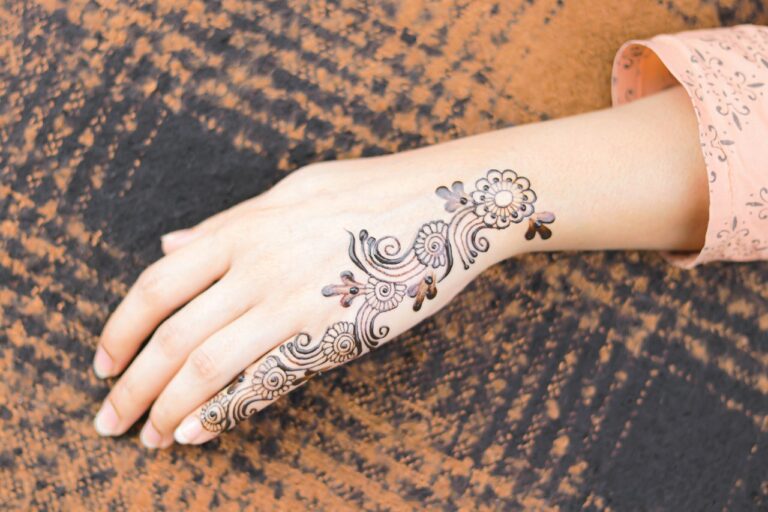The Business of Fashion: Insights into Branding, Marketing, and Sales Strategies
The fashion industry is a dynamic and fast-paced sector that encompasses a wide range of businesses involved in the design, production, and retail of clothing and accessories. From haute couture to ready-to-wear collections, fashion brands constantly seek to innovate and stay ahead of rapidly changing trends to meet consumer demands.
With the influence of social media and digital platforms, the fashion industry has become more accessible and globalized, allowing consumers to engage with brands and make purchases with unprecedented ease. This modern landscape has led to increased competition among fashion companies, driving the need for creativity, strategic marketing, and sustainable practices to stand out in the market.
Understanding Consumer Behavior in Fashion
In the dynamic world of fashion, understanding consumer behavior is paramount for brands striving to stay relevant and successful. Consumer behavior encompasses the actions and decisions made by individuals when purchasing and utilizing fashion products. Factors like personal preferences, lifestyle choices, social influences, and cultural norms all play a significant role in shaping consumer behavior within the fashion industry. By analyzing these aspects, fashion brands can tailor their products and marketing strategies to better resonate with their target audience.
Moreover, the rise of digital platforms and social media has significantly impacted consumer behavior in the fashion industry. With the advent of e-commerce and social media influencers, consumers now have access to a vast array of fashion choices and inspiration at their fingertips. This has led to a shift in how consumers discover, evaluate, and purchase fashion products, with social media playing a pivotal role in influencing purchasing decisions. As a result, brands need to adapt and engage with consumers through online platforms to stay competitive and relevant in today’s fast-paced fashion landscape.
• Personal preferences and tastes greatly influence consumer behavior in the fashion industry
• Lifestyle choices also play a significant role in shaping how consumers interact with fashion products
• Social influences, such as peer groups or celebrities, can impact purchasing decisions in the fashion sector
• Cultural norms and values can dictate what is considered fashionable or desirable within different societies
The digital age has revolutionized how consumers engage with fashion brands:
• E-commerce platforms provide consumers with convenient access to a wide range of products from around the world
• Social media influencers have become powerful trendsetters, influencing consumer preferences and purchase decisions
• Consumers now rely on social media for inspiration, product reviews, and style recommendations before making purchases
• Brands must establish a strong online presence to connect with tech-savvy consumers and drive sales in today’s competitive market.
Building a Strong Brand Identity
When it comes to establishing a strong brand identity in the fashion industry, consistency is key. Brands that communicate a clear and cohesive message across all touchpoints tend to resonate better with consumers. This involves not only maintaining a unified visual identity through logos, color schemes, and typography but also ensuring that the brand’s messaging and values remain consistent in all communication channels.
In addition to consistency, authenticity plays a crucial role in building a strong brand identity. Authenticity involves staying true to your brand’s values, mission, and heritage. Consumers today are drawn to brands that are genuine and transparent, so it is essential to embody these qualities in every aspect of your brand, from product design and marketing campaigns to customer interactions and social media engagement. By remaining authentic, you can build a loyal customer base that trusts and identifies with your brand on a deeper level.
What is the importance of having a strong brand identity in the fashion industry?
Having a strong brand identity in the fashion industry helps differentiate your brand from competitors, build customer loyalty, and establish a consistent image that resonates with your target audience.
How can understanding consumer behavior in fashion help in building a strong brand identity?
By understanding consumer behavior in fashion, brands can tailor their products, messaging, and marketing strategies to better meet the needs and preferences of their target audience, ultimately strengthening their brand identity.
What are some key factors to consider when building a strong brand identity in the fashion industry?
Some key factors to consider when building a strong brand identity in the fashion industry include defining your brand values and mission, creating a unique visual identity, maintaining consistency in branding across all channels, and engaging with customers to build brand loyalty.
How can a brand effectively communicate its brand identity to consumers in the fashion industry?
Brands can effectively communicate their brand identity to consumers in the fashion industry through consistent messaging, visual branding elements (such as logos and color schemes), engaging storytelling, influencer partnerships, and omni-channel marketing strategies.







